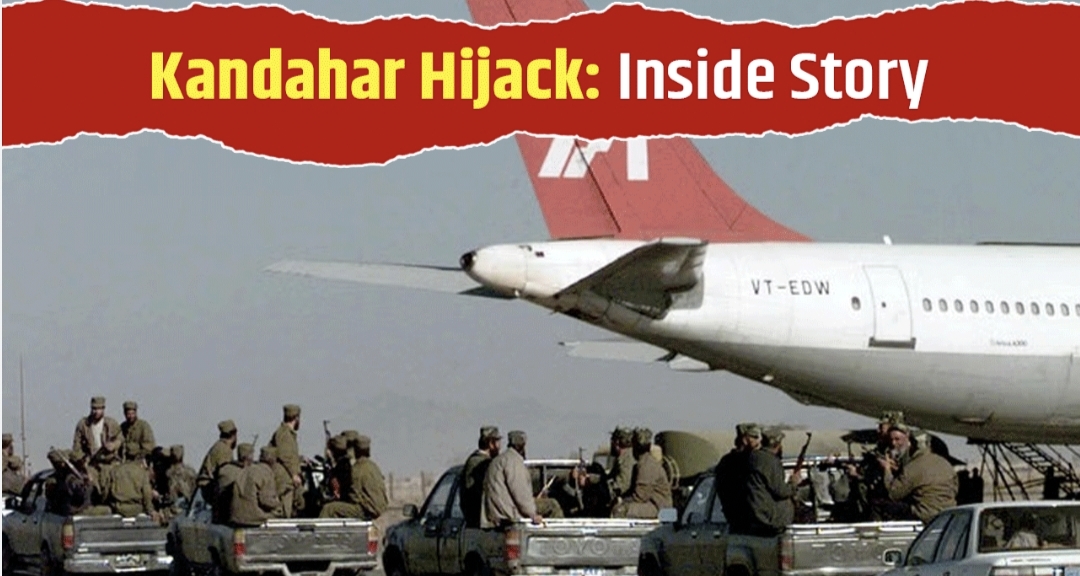Netflix’s ‘IC 814: The Kandahar Hijack’ Faces Controversy: Real Names of Hijackers Added to Opening Disclaimer

Netflix’s new series IC 814: The Kandahar Hijack has recently attracted significant attention and controversy due to its portrayal of the 1999 hijacking of Indian Airlines Flight 814. Directed by Anubhav Sinha, the series aims to recreate the harrowing events of the hijacking.
However, it has faced criticism over the use of controversial code names for the terrorists involved. In response to the backlash, Netflix has made updates to the opening credits to include the real names of the hijackers. This article provides a comprehensive look at the controversy, the impact of the changes, and the broader implications for media portrayals of historical events.
Background of the 1999 Hijacking
The hijacking of Indian Airlines Flight 814 in December 1999 was a dramatic and tragic event. The flight, en route from Kathmandu to Delhi, was hijacked by five terrorists belonging to the extremist group Harkat-ul-Mujahideen. The terrorists demanded the release of their comrades held by the Indian government. The crisis lasted for seven days and ended with the release of the hostages in exchange for the terrorists.
The Controversy Surrounding the Series
The Netflix series IC 814: The Kandahar Hijack has been the subject of controversy primarily due to the portrayal of the hijackers. The initial release used code names for the terrorists, including some that were perceived as having religious connotations. Specifically, two of the terrorists were assigned ‘Hindu’ code names, which drew significant criticism from various quarters, including viewers and cultural commentators.

Criticism and Response
The use of these code names was seen by many as problematic, with critics arguing that it was insensitive and potentially inflammatory. This led to a substantial backlash, with calls for Netflix to address the issue. The controversy intensified when Netflix’s leadership was summoned to explain the decision, highlighting the sensitivity surrounding the depiction of such events.
Netflix’s Response and Changes
In response to the backlash, Netflix updated the opening disclaimer of the series. The revised credits now include the real names of all the hijackers alongside their code names. This move is intended to provide clarity and address the concerns raised by critics about the portrayal of the terrorists.
Monika Shergill, Vice-President of Content at Netflix, stated, “For the benefit of audiences unfamiliar with the 1999 hijacking of Indian Airlines Flight 814, the opening disclaimer has been updated to include the real and code names of the hijackers. The code names in the series reflect those used during the actual event (sic).”
Implications of the Update
1. Accuracy vs. Sensitivity
The update to the series underscores the balance between historical accuracy and cultural sensitivity. While the series aims to depict real events, the choice of code names and their implications can impact audience perception and sensitivity. The inclusion of real names helps address some of these concerns but also raises questions about the broader impact of media portrayals on historical events.
2. Impact on Viewership and Reception
The controversy and subsequent updates have likely affected the viewership and reception of the series. While some viewers may appreciate the effort to correct the portrayal, others may remain critical of how the series handled sensitive aspects of the hijacking. The overall impact on the show’s popularity and ratings will be closely watched.
3. Industry Standards and Future Productions
This incident highlights the importance of handling sensitive historical events with care. It may prompt other producers and streaming platforms to revisit their approaches to portraying real-life events, ensuring that they address cultural sensitivities and avoid potential controversies.
Netflix’s IC 814: The Kandahar Hijack has navigated a complex landscape of historical accuracy and cultural sensitivity. The decision to update the opening disclaimer to include the real names of the hijackers is a response to significant criticism and reflects the ongoing debate over how such events should be depicted in media. As the series continues to be a topic of discussion, it serves as a case study in balancing respect for historical events with the need for responsible storytelling.
Future Directions
The ongoing discussion surrounding IC 814: The Kandahar Hijack will likely influence how future productions handle similar topics. By addressing the criticisms and updating the series, Netflix demonstrates a commitment to responsiveness and accountability. As the industry evolves, the lessons learned from this controversy will shape how historical events are portrayed in the media.
1. The Kandahar hijack refers to the hijacking of Indian Airlines Flight 814 (IC 814) on December 24, 1999, which was hijacked by five terrorists affiliated with the Taliban and taken to Kandahar, Afghanistan.
2. The hijacking resulted in a week-long standoff between the Indian government and the hijackers, ending with the release of three militants, including Masood Azhar, in exchange for the safety of the 176 passengers and crew on board, a decision that remains controversial to this day.
Netflix, IC 814, Kandahar Hijack, Anubhav Sinha, Controversy, Terrorism, Streaming News, Entertainment
Also see this post:Netflix Revises ‘IC 814: The Kandahar Hijack’ Disclaimer Amid Controversy












Hey! Do you know if they make any plugins to assist with SEO?
I’m trying to get my website to rank for some targeted keywords but I’m not seeing very good gains.
If you know of any please share. Appreciate it! You can read similar text here: Wool product
https://youtu.be/66_iIZXJGNQ